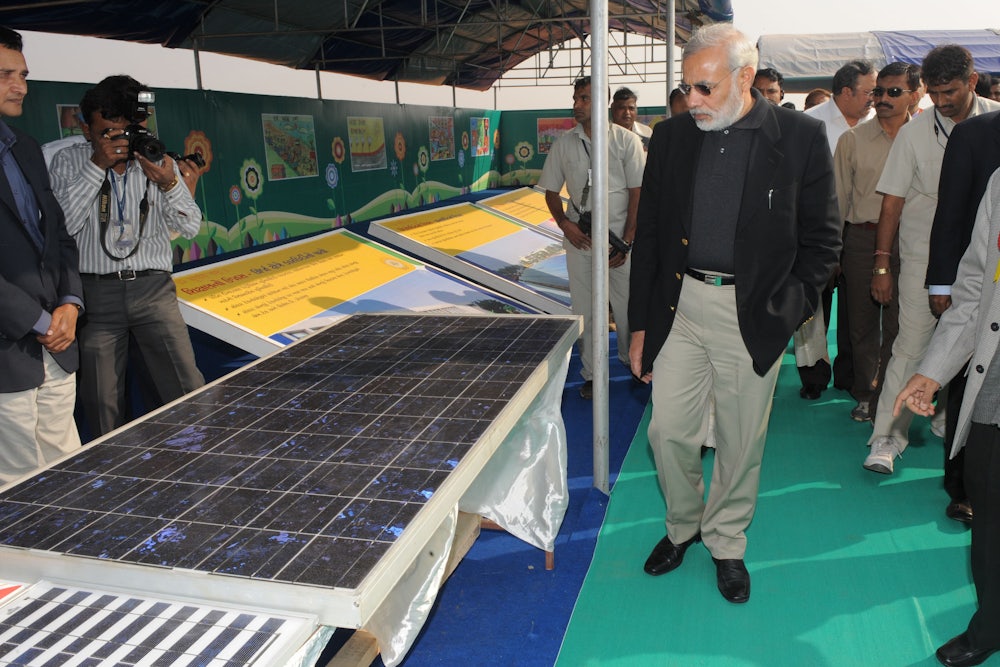India is in a different position from most countries at the Paris climate talks. It’s the third-largest polluter and growing its greenhouse gas footprint, but 300 million Indians also lack access to electricity, particularly in rural areas. Rather than offer up absolute cuts to its greenhouse gas emissions, India has pledged to boost renewables in its power sector.
The context is important: India has been reluctant to commit to a deal that puts the country on equal footing with historic polluters like the U.S. and Europe, and for good reason. It’s why the country has fallen short of hopes it would identify a year when its emissions could begin coming down. And as the New York Times puts it, India’s negotiating position could make or break a strong Paris deal.
Solar is a brightest spot of that story. It meets two needs at once: Solar can bring power to more Indians in remote locations and slow the growth of the country’s emissions. On Monday, Modi announced a 120-country solar alliance, which will receive an initial $30 million investment from India, with a goal of $400 million from worldwide support.
That’s the most significant thing Prime Minister Narendra Modi is bringing to the table at Paris. If India can manage to ramp up its solar to 100 gigawatts by 2022—a hefty $100 billion investment—it would be no small achievement.
